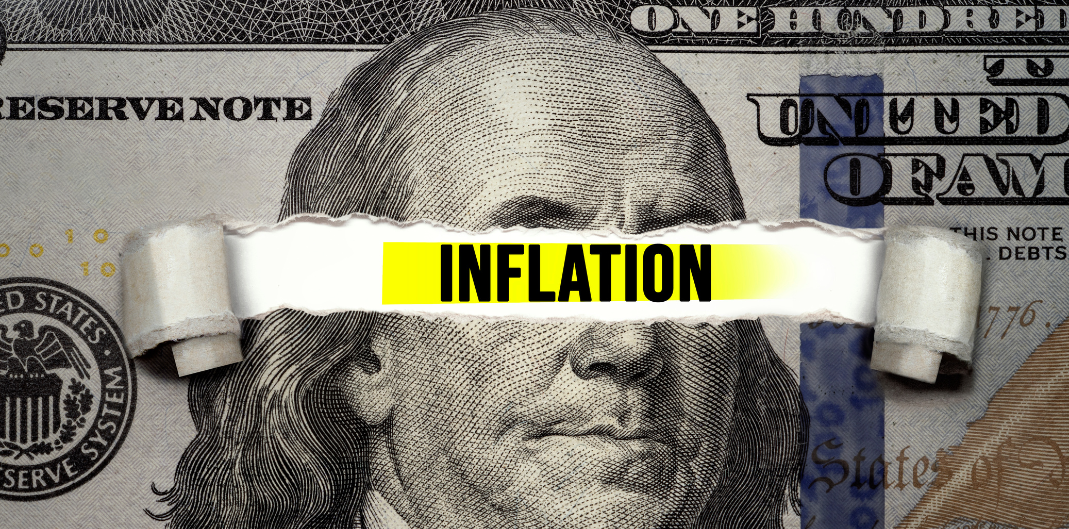- Reading time: 3 mins 59 secs
Introduction
Inflation – it’s the scourge of modern civilisation. But to what extent?
When it comes to your investments, it can be devastating.
In this article, we discuss the impacts of inflation on investments and outline the strategies to protect yourself against it.
Definition of inflation
Inflation is the continuous rise in prices of goods and services over time. The rise occurs if there is an increase in demand for these services.
It affects the prices of basic things like food, fuel, electricity and gas. Itmeans that money doesn’t go as far as it used to.
Thus, your investments can be affected too.
How inflation affects investment returns
Basically, when prices rise, the value of your money decreases. That means your money will buy less than before.
The knock-on effect is that you will need to invest more money in order to make the same amount of money as before.
Some investments with fixed returns, such as certificates of deposit (CDs) and bonds, may not be able to keep up with inflation.
Certain stocks can also feel the heat of inflation if the company is unable to adjust prices in response to market conditions.
Examples of investments that are impacted by inflation
Some examples of investments that are impacted by inflation include:
- Commodities
- International stocks
- Real estate
Also, because different countries have different levels of inflation that toocan affect the value of international stocks in those markets.
Real estate prices can increase due to inflation if demand for housing is greater than the supply. This too usually leads to higher prices.
Historical data on the impact of inflation on investments
Historical data shows that some investments have done better in periods of high inflation. Whereas, others have not.
Gold and commodities tend to do well when inflation is high. Compared to bonds and CDs which may do less well due to their fixed rate.
Thus, it’s important to monitor changes in the rate of inflation and understand the potential risks associated with investing.
Historical data provides that insight. This can then inform your investment decisions.
Strategies to protect yourself from inflation
Inflation can sneak up on us at any time, so it’s a good idea to be aware of the things you can do to protect your investments.
Here are a few tips:
Investing in inflation-protected securities
The aim of Treasury Inflation-Protected Securities (TIPS) is right there in its name. TIPS are bonds issued by the US government that have variable interest rates which adjust according to inflation levels. This means they can keep up with the rising prices of goods and services.
There are also some stocks that are able to adjust their prices in response to inflation.
For example:
- Energy
- Financials
- Precious metals
- Consumer staples
- Property Real Estate
- Investment Trusts (REITs)
Diversifying your portfolio
Diversification is the art of not investing in one type or area of investment. Instead, you are spreading them out a bit.
Diversifying your investments across different markets and asset classes is one of the best ways to protect against inflation.
This way, if one type of investment starts to suffer from inflation, you have others that can pick up the slack.
Investing in real assets
Investing in real assets such as property or land is another anti-inflation strategy. These investments tend to increase in value over time.
Therefore, even if prices go up due to inflation, your investments should still go up in value.
Investing in commodities
Commodities are also generally pretty inflation-proof. These are things like gold, silver, and oil. They tend to hold their value despite fluctuations in the economy or inflation rates.
Choosing the right inflation-indexed bonds
Inflation-indexed bonds are another potential way to arm against inflation. These are a type of bond that pays out interest linked to the inflation rate. That way you can be sure your investments will still gain in value over time.
Consideration of timing and duration of investments
Another useful tactic when protecting your investments from inflation is to consider:
- Timing of your investments, and
Duration of your investments
Investing for the long-term is the #1 philosophy to take. Picking the right times to buy and sell is another.
That way you’ll be sure to get the most from your money.
Conclusion
Inflation can be a tricky thing to understand, but with a few simple steps you can make sure that your investments stay safe.
Taking the right precautions now can save you money in the long-run and help ensure that your investments are protected from the effects of inflation.
In short, it is important to understand the impacts of inflation on investments and how it can affect your returns.
Recap of the key takeaways
Use Inflation Protection Strategies when investing, such as:
Investing in inflation-protected securities
Diversifying your investments
Investing in stocks that can adjust their prices
Consider timing and duration of your investments
By doing so, you will be better prepared to face any potential risks associated with inflation.
With the right knowledge and preparation, you can protect your investments from inflation and ensure they stay safe no matter what.
If you want to know more investments and the best strategies to use when investing, then subscribe to IM Insider today.
IM Insider is free and an excellent source of everything you need to know about trading investments, plus a vast array of educational material such as courses, guides, workshops, videos and forums.
You also get access to our Private Facebook Group which gives you exclusive insights from other group members as well as our head traders and coaches.



